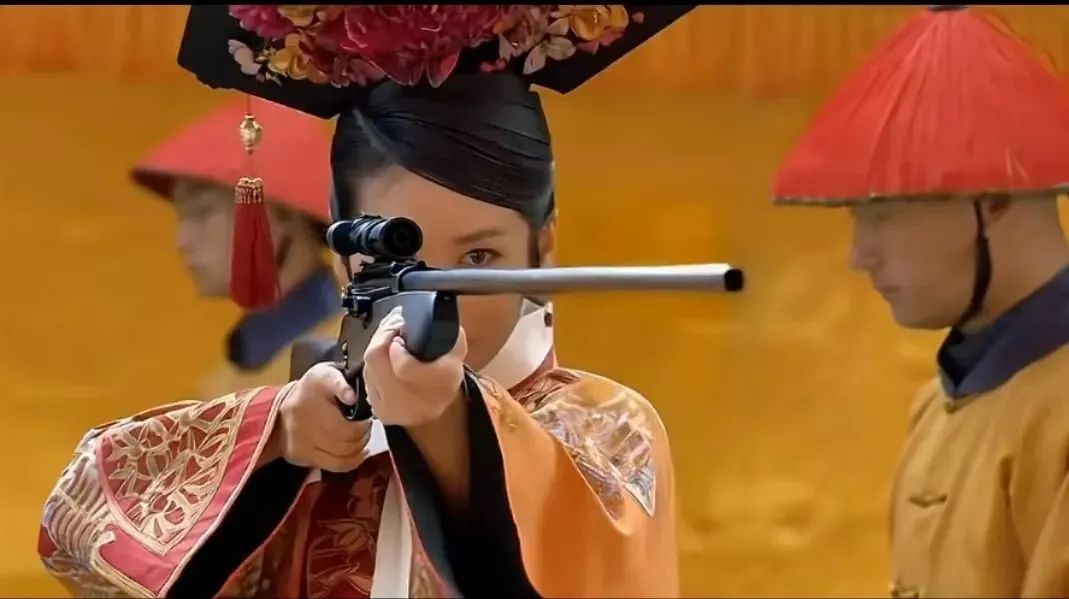With the development of AI technology, AI is widely used in various occasions. Recently, in the field of video creation, a series of “magic” videos have appeared. Some bloggers have made very large-scale spoofs and adaptations of classic movie and television works, which has triggered widespread controversy. For example: The Legend of Zhen Huan was adapted into a “gunfight movie” and a “science fiction movie”; Cao Cao raised a machine gun in Three Kingdoms; Lin Daiyu and Jia Baoyu fought at the same time in Dream of Red Mansions; the Monkey King transformed into a spaceship, and the Tang Monk rode a motorcycle, and so on, and the advancement of technology has led to a series of “magic transformation” videos. The advancement of technology has led to the “magic alteration” that can almost be faked, and the video presented is very absurd.
In this regard, the General Administration of Radio, Film and Television, Network Audiovisual Division issued the “Management Tips (AI Magic Alteration)”, requiring all relevant departments to supervise short video platforms to investigate and clean up short videos of AI “magic alteration” of films and TV dramas, and to regulate the phenomenon of “magic alteration”.
The picture source

“rule of law daily” ▲
AI “magic” video may be suspected of violating the law.
AI “magic” video may be for the sake of fun, but some people are also spoofing for the sake of eyeballs. In fact, AI “magic” video is suspected of violating the law, which may violate the legal rights and interests of others, including:
1. Copyright
Article 10 of the Copyright Law stipulates: “Copyright includes the following personal and property rights: (a) the right to publish, i.e. the right to decide whether a work is to be made public; ...... (d) the right to protect the integrity of works, i.e. the right to protect works from distortion and alteration. ...... (xiv) the right of adaptation, i.e., the right to alter the work to create a new work of original creation; ......”
Article 52 states, “Anyone who commits the following infringements shall, depending on the circumstances, bear civil liability for stopping the infringement, eliminating the influence, making amends and apologizing, and compensating for the loss: (i) publishing the work of the copyright holder without his permission; ...... (iv) distorting or falsifying the work of another person; ......”
If AI “magic” videos are published without the permission of the copyright holder of the original work, the publication of the video work and the distortion or falsification of the original work may constitute an infringement of the copyright of the original work.
2. Portrait right
AI “magic” videos often use the likenesses of the actors and actresses in the original drama, and if the actors and actresses use their likenesses for “magic” without their consent, this may constitute an infringement of the actors and actresses' right to likeness. If there is spoofing, it may also cause damage to the actor's image and affect his or her career.
The SARFT's “Management Tips” signifies that regulators have realized that the generation and dissemination of AI “magic” videos not only infringes on the legitimate rights and interests of the original creators, but also disrupts the healthy order of the online environment, and desecrates classic works for the sake of obtaining traffic. However, due to the rapid iteration of AI technology, there are a lot of AI video software on the market, and there are also a lot of AI video production tutorials, which makes the generation and dissemination of “magically altered” videos become more and more convenient, and the video can be generated in a few seconds and can highly simulate the original sound, and the covert nature of the stronger, which has brought challenges to the regulatory work.
In addition, AI “magic” video not only involves legal issues, but also cultural issues. Some of the “magic” video for the traffic, ignoring the original spirit of the classic IP, distorting the traditional cultural cognition, and even contrary to public order and morals, bringing bad social impact. Not only damage the artistic value of classic works, but also may lead to the distortion of social values.
Second, the governance of AI “magic” video needs the efforts of all sides
The governance of AI “magic” video is not only the responsibility of the government, but also requires the joint efforts of all sectors of society. On the “magic” video phenomenon, the author has the following reference suggestions:
First of all, for the “magic” video publishers, before using AI to adapt other people's video works, it is important to obtain the authorization of the copyright holder and the relevant actors, including the right of reproduction, the right of adaptation, the right of dissemination of the information network, the right of portrait and so on, before releasing the work. Care should be taken to indicate the original author and copyright information in the published work, and malicious alteration and distortion of the original work should be avoided to respect the original author and protect intellectual property rights.
Secondly, short video platforms should adopt more stringent content auditing measures, and utilize artificial intelligence, big data and other advanced technological means to identify and filter out potential “magically altered” videos. Platforms should formulate a clear management system to penalize the uploading of videos containing infringing content and severely punish violators. Platforms should also strengthen cooperation with copyright holders and establish rapid response channels and resolution mechanisms so that they can take prompt action when infringement occurs.
Again, for the media, publicity should be strengthened to guide the public to establish correct cultural values, respect original content and strengthen awareness of intellectual property protection. Increase user education to raise users' awareness of copyright protection and the law, and avoid using “magically altered” videos as a means of creation. The media should also play a role in monitoring public opinion, exposing infringing behaviors, and strengthening the awareness of intellectual property protection.


© Beijing JAVY Law Firm Beijing ICP Registration No. 18018264-1